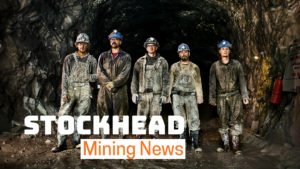Millennials lead the impact investing charge, realise money isn’t everything

Pic: Bloomberg Creative / Bloomberg Creative Photos via Getty Images
What if doing good could make you rich as well?
The growing trend in investing for impact is being driven by increasingly savvy millennials, but trying to gain exposure to it on the ASX small cap market is still hard to do.
In a study by Morgan Stanley earlier this year, millennials were shown to be driving the impact investing market, said to be worth as much as $32 billion in Australia by 2022.
Also known as sustainable investment, the methodology strives to achieve a measurable environmental or social gain as well as a financial return.
Impact Group International founder Ranya Alkadamani said the shift in the attitude of the market was largely spearheaded by the events of the global financial crisis, where investors understood that there was more to just making money.
“Increasingly people are merging their philanthropic desires with their monetary decisions to put their money where their values are,” she told Stockhead.
“We are seeing that the government can’t solve all of our problems so initiatives like social impact bonds are happening all around the country.”
But Australia has some catching up to do.
If you’re looking for the warm and fuzzies on the ASX small cap market its slim pickings, though Ms Alkadamani predicts there will be more to come as investors realise the social and environmental potential of their decisions.
“We have a way to go in bringing impact investing to the retail market but if you look at community solar projects like the one on the Sydney International Convention Centre the offerings were all over subscribed.”
ASX-exposure
Renewables are where much of the focus is, as alternative energy sources increase in public sentiment.
Genex (ASX:GNX) is a $105 million multi-method energy generation and storage company with hydroelectricity and solar projects in Queensland.
Chief executive Simon Kidston told Stockhead listing the company meant it had to have a profit motive, but the nature of the business gave it exposure to the impact market.
“A lot of the retail shareholders are partially motivated by sustainable investing – what surprises me is that the ethical investment sector is relatively embryonic in Australia,” he said.
The same sentiment was echoed by Michael Ottaviano from renewable energy developer Carnegie (ASX:CCE) who described the Australian industry as nascent.
“We have 11,000 shareholders and there is no doubt that a large part is bias to impact investing but the term itself is not well promoted here,” he said.
“Impact investing has been a missed opportunity and there hasn’t been a critical mass to underwrite an investment community in this space – it can’t just be one company but a movement towards these types of projects.
“Only now are we seeing dedicated impact investing funds popping up – but it’s very much a chicken and the egg type scenario.”
In addition to environmental benefits from their wave, solar and battery operations in Perth, Carnegie has also pursued social impact at its Northam Solar Farm by teaming up with Indigenous Business Australia.
International Impact
“Businesses acting as businesses, not as charitable donors, are the most powerful force for addressing the pressing issues we face,” wrote Harvard academics, Michael Porter and Mark Kramer.
“The moment for a new conception of capitalism is now; society’s needs are large and growing, while customers, employees, and a new generation of young people are asking business to step up.”
They say the purpose of the corporation will be refined as more than just profit to become shared value, and the big players internationally are already stepping up.
Big banks the likes of UBS have already created roles to play into the space.
Head of sustainable and impact investing for the bank, veteran Michael Baldinger described it as a game-changer for the finance industry, estimating its worth at $25 billion in the US alone.
“In the past you sold products to your client, now you empower your client to create a desired impact… as an industry we’ve had to rethink everything we do.”
In Australia, impact investing funds like 8IP are starting to pop up, with focus areas across renewables as well as wellbeing, education and affordable housing.
The fund is yet to be listed on the ASX but with three other LICs under their management it could be on the horizon.
UNLOCK INSIGHTS
Discover the untold stories of emerging ASX stocks.
Daily news and expert analysis, it's free to subscribe.
By proceeding, you confirm you understand that we handle personal information in accordance with our Privacy Policy.








